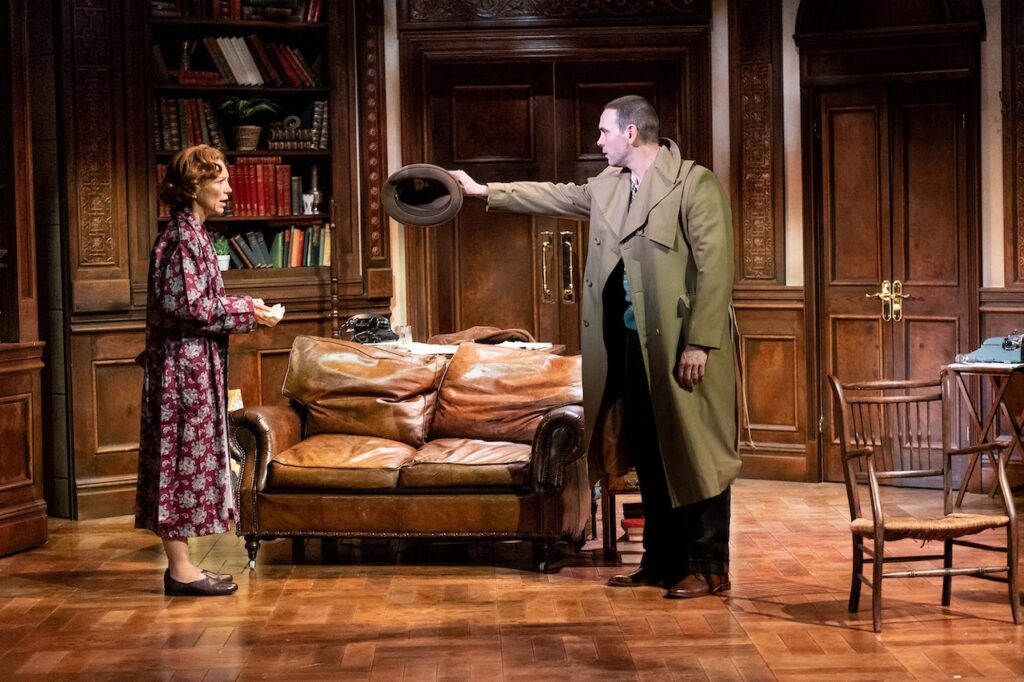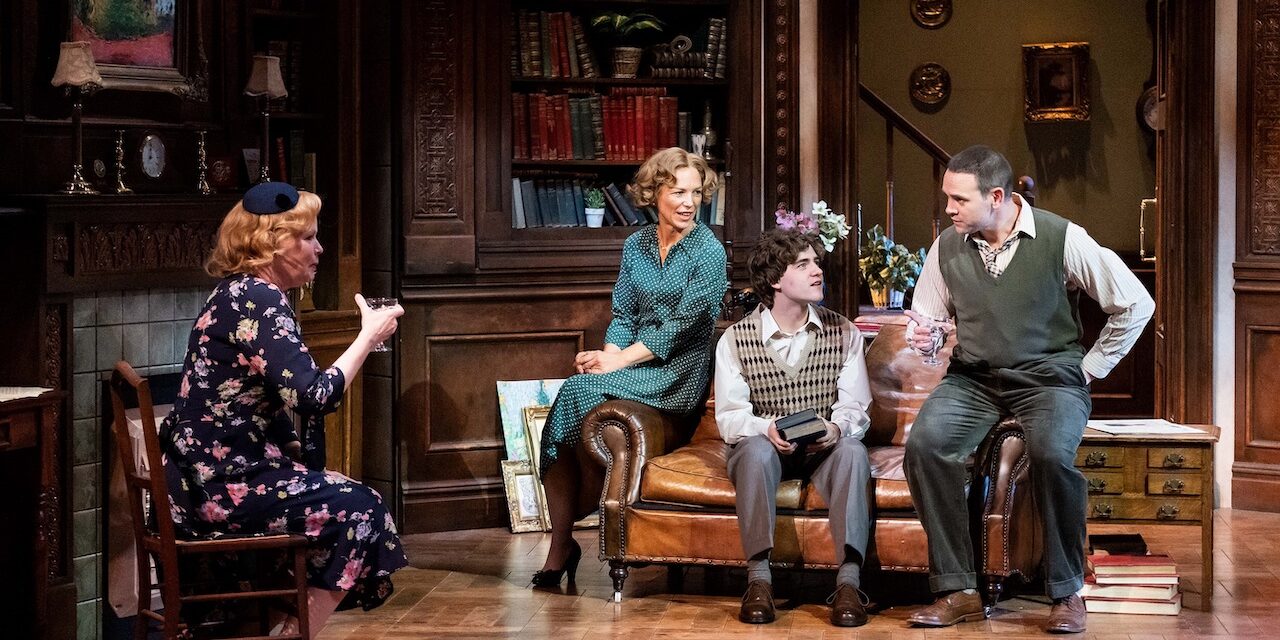
2 – 6 July
It has been suggested that Accolade serves as a metaphor for playwright Emlyn Williams’s lifelong bisexuality – a man, on the surface, seemingly content with married life, but with a need to explore his yearnings for homosexual encounters.
In this period drama Williams gives his hero, the literary award-winning and soon to be ‘Sir’ William Trenting, a different twist on the idea of a double life. Trenting is partial to moments of abandon, with booze and heterosexual encounters his go-to indulgences. In the upstairs rooms of a Rotherhithe pub he seeks out erotic thrills with strangers at parties arranged by his mates, East End pimps Harold and Phyllis, played with saucy cockney devil-may-care attitudes here by Gavin Fowler and Sarah Twomey. Trenting’s experiences help him fill the pages of his racy novels and provide a perfect foil for his otherwise sedate life with his wife Rona, near Regents Park.
But whereas you might expect the tension in the story to reside in Trenting keeping his peccadilloes hidden from his wife, on the contrary, she knows all, he keeps no secrets. So, what drives the narrative here? Something that, in the end, will force him to take a much harder look at himself in the mirror.
On a lovingly crafted set by Julie Godfrey, we join the Trenting family in the book-lined living room of their very comfortable home in central London. Ayden Callaghan, more widely known for his on-screen roles in Emmerdale and Hollyoaks, brings something of the spoilt kid to his portrayal of the celebrated author, a man petulantly determined to follow his passions into the fleshpots of London’s docklands. His long-suffering wife, played with well observed fifties style and convention by Honeysuckle Weeks, his straight-laced man servant/secretary Albert (Jamie Hogarth), and publishing agent Thane (David Phelan) are all too aware of Trenting’s proclivities, turning disapproving but needs-must blind eyes, as high honour awaits the talented miscreant in their midst.
The play, at nearly two and half hours (with an interval) is long. Williams indulges in a very protracted lead-up to the first moment of real threat in the narrative, when Dakar (Narindar Samra) confronts Trenting with evidence that his own underage daughter was at a recent orgy with the author. An unusual bargaining for a settlement ensues before reality dawns on the author that the game could be up.
What makes Williams’ play interesting are the multiple layers and inferences of morality within it. Yes, Trenting is undoubtedly a sex addict, but he is honest about it. While Dakar, a man rightfully horrified at the procurement of his daughter for the sexual appetites of older men like Trenting, is compromised by his own sense of inferiority, which exposes his own needs to exploit when he senses he has some power over the more successful man. Nobody comes out of this squeaky clean apart from the Trentings’ teenage son, Ian, played with believable naivety by Louis Holland, his presence another metaphor, you might imagine, for Trenting’s loss of innocence.
Director Sean Mathias has done a good job keeping our attention throughout on the one set, if at times it felt like we were witnessing a well-populated rabbit hutch, such were the multiple comings and goings within the Trenting home. The use of a lit gauze funnel that envelopes Trenting alone at the start, then the family towards the final moments, is effective as a symbol of enclosing isolation, as is the surprise folding in of the set.
Seventy-four years on after its debut performance, Accolade continues to hold resonance, with its themes of sex scandal and press monstering as visceral as ever. The script though can feel somewhat laboured, taking overly long to make points that could be anticipated. And one has to buy into caring about Trenting enough to be carried by the suspense implicated by his ultimate fate, which isn’t a given. But this Fifties period piece is nothing if not a highly professional piece of theatre-making.
★★★☆☆ Simon Bishop, 3 July 2024
Photo credit: Jack Merriman


